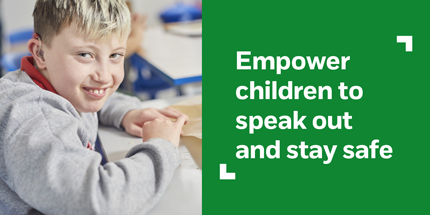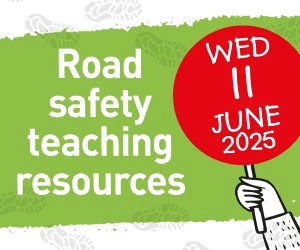Primary Times - the definitive what’s on and where to go family guide of activities and events for children of primary school age. Things to do with your kids during the school holidays including arts and craft activities, music and theatre for children, parties, competitions, days out, and family attractions along with term time drama schools, dance classes, after school clubs and sports activities. Things to do at a place near you!
Primary School Taps into NSPCC’s Speak out Stay safe Programme to Support PHSE Curriculum

A recent independent evaluation by the NSPCC confirmed an ongoing need for Speak out Stay safe (SOSS). Whilst most primary children have a good understanding of what abusive behaviour looks like and which trusted adults they can speak to, the children’s charity safeguarding programme is designed to boost schools’ relationships and sex education (RSE) teaching. Headteacher Sarah Oliver from Rowledge C of E Primary in Farnham shares how her pupils have engaged with the online assembly.
Just this term we ran our first Speak out Stay safe (SOSS) online offering with our children to support them in feeling empowered – knowing how they can speak out and stay safe with the support of classroom resources. Making sure that pupils then have sufficient time to reflect on these sessions is a key priority for our teachers. Tapping into thought books that they use every morning, pupils are encouraged to write down any thoughts or feelings that they may want to share with their teacher. Having this tool available means they really took the content of the assembly seriously.
The SOSS online assembly is well-made, and the introduction of Ant and Dec is genius. The children absolutely love them, and it makes the film very current. With the programme's goal of ensuring children know how to access support, if they need it, it wouldn't be everyone who can deliver such difficult content. However, Ant and Dec and their co-presenter manage it with just the right level of sensitivity. At primary level if you don’t grab the pupils’ attention from the get-go you’ve lost them before you’ve even begun. So, the delivery being engaging and entertaining without trivialising the seriousness of the topic means the children really want to listen.
One of the pupils’ main takeaways from SOSS is that they are supported in telling someone if they think there’s a problem. Teachers encourage students to critically think about if something doesn’t feel right and listen to any butterflies in their tummy which might indicate that they need to confide in someone. From experience we know that a child is more likely to first disclose to a close friend than an adult, especially if they feel the grown-ups in their life are too busy. So, leveraging the NSPCC’s content, we have also developed extra materials around keeping friends safe.
SOSS has also helped support our safeguarding duties while linking directly to the curriculum. Working in the education sector you’re often told to deliver a subject but aren’t given the right resources to do so. For example, when it comes to PHSE subjects such as abuse or sex education, teachers naturally worry about getting it right. It's critical that resources can either be delivered by external organisations or are made available for teachers, so SOSS is pivotal for tackling an issue that’s close to my heart.
Given that some of the abuse that can be experienced as you get older isn’t always obvious, the impact of nuances in relationships is important for pupils to be aware of early on. Despite the sensitive nature of the topic the SOSS online assembly manages it superbly. Not shying away from difficult subject matters and approaching them in a way that is accessible for children is crucial, so they’ve really hit the nail on the head in my eyes. Available to every primary school at no cost I’d highly recommend SOSS to all. Unless you’re specifically teaching this in your own way, and you have a clear programme of study it should be 100% compulsory. It’s a non-negotiable that children know that abuse is never their fault and that they have the right to be safe.
Interested in the NSPCC’s online safeguarding programme? Receive their online assembly and supporting resources to use in your classroom discussions by signing up your primary school today.





